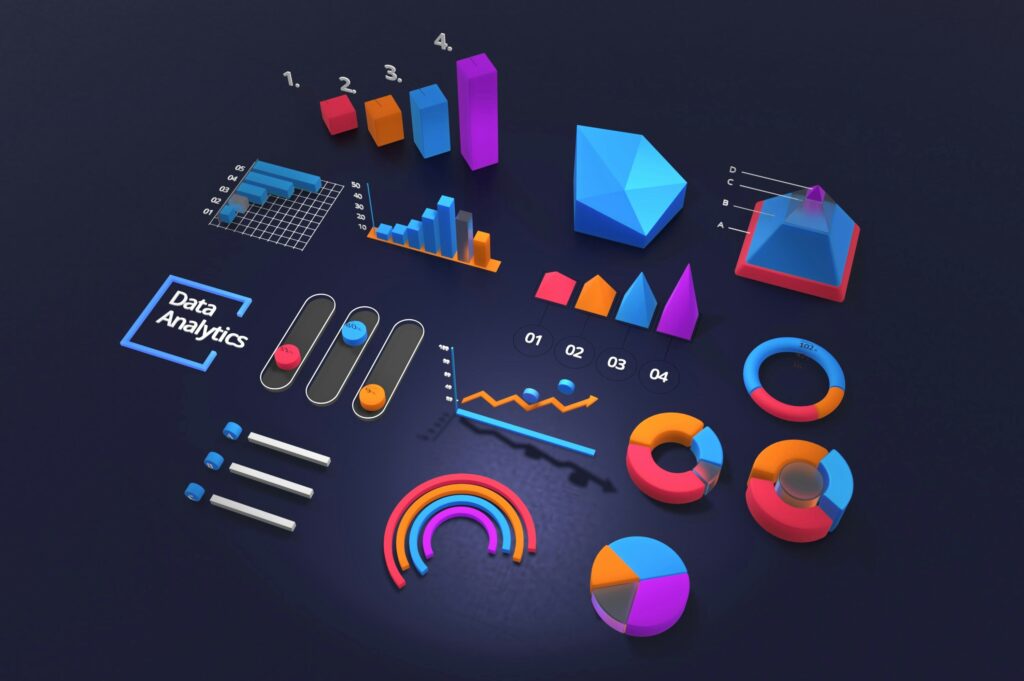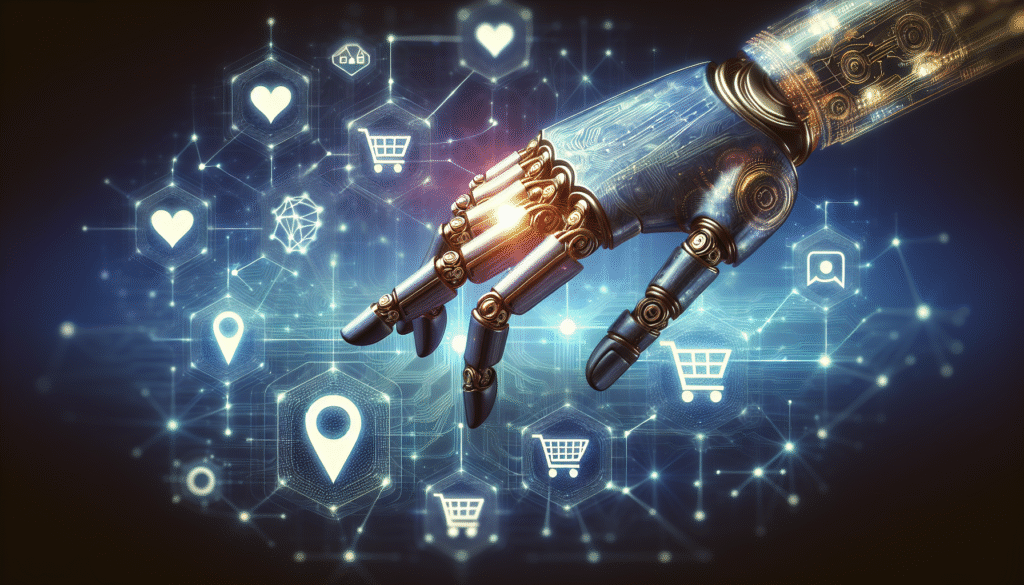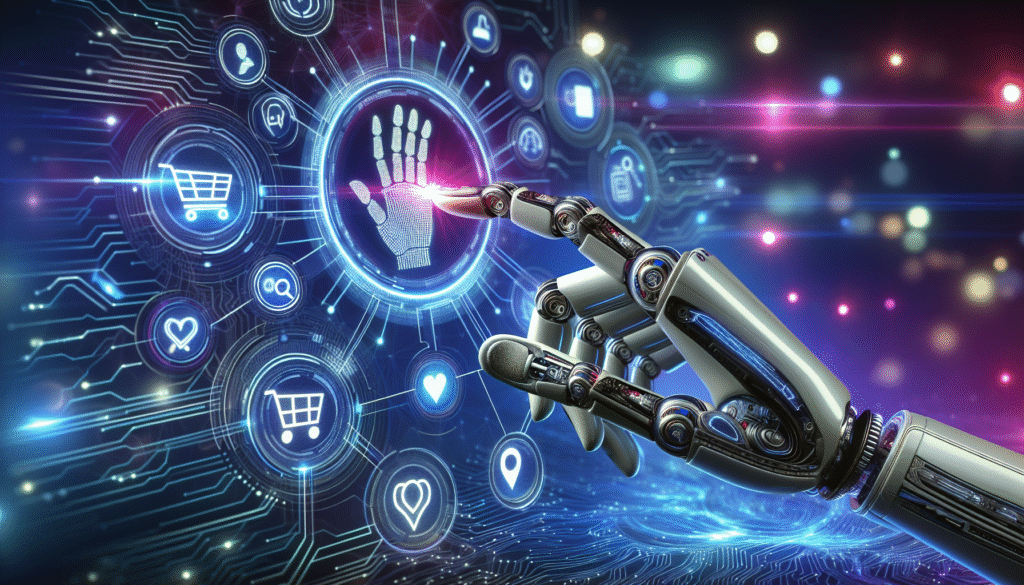Have you ever wondered how websites and apps seem to know exactly what we want? It’s like they can read our minds! This phenomenon isn’t magic; it’s the result of advanced technologies, particularly artificial intelligence (AI). We find ourselves in a unique position where AI is not just a tool; it’s becoming an integral part of our daily lives, shaping our experiences in ways we might not fully realize. So, can AI predict user behavior and shape our future? Let’s unravel this together.
Understanding AI’s Role in Predicting User Behavior
At the heart of AI’s ability to predict user behavior is data. Every click we make, every purchase we complete, and even the time we spend on a page contributes to a vast pool of information.
The Data Is Out There
We generate enormous amounts of data daily through our online interactions. From social media activity to online shopping, our digital footprint is expansive. Algorithms thrive on this data, learning from patterns we may not see ourselves.
Machine Learning: The Brain Behind AI
Machine learning, a subset of AI, is what allows systems to learn from data. The more data these systems receive, the better their predictions. But how do they do this?
-
Patterns: They identify patterns in our behavior. For example, if we frequently search for travel deals, an AI might suggest holiday packages tailored to our preferences.
-
Feedback Loops: They use feedback loops to refine their algorithms. If a suggestion was clicked on, that’s a win; if ignored, adjustments are made for future predictions.
The implications of this predictive behavior are enormous, influencing everything from advertising to content suggestions.

How AI Is Shaping User Experience
As we interact with technology, the way AI shapes our experience becomes more apparent. Our interactions are becoming more personalized, which can be both a blessing and a curse.
Personalization in Action
Personalization enhances our interaction with technology. Think about the last time you logged into your favorite streaming service. Recommendations tailored to us can lead to finding a new favorite show or movie we didn’t even know we wanted.
Example of Personalization:
| User Behavior | AI Prediction | Result |
|---|---|---|
| Viewing romantic comedies | Suggest more romantic comedies | Increased user engagement |
| Shopping for running shoes | Recommend running gear | Higher sales conversion rates |
Automation of Tasks
With AI, many mundane tasks are being automated. This not only saves us time but can also elevate our productivity. Virtual assistants are already in our lives, helping us stay organized and keeping track of our schedules.
How Automation Benefits Us:
-
Efficiency: Automating repetitive tasks frees up our time for more creative or meaningful pursuits.
-
Consistency: AI can perform tasks with consistent quality, reducing human error.
As more tasks become automated, we need to consider what this means for our role in the workforce. Will we be replaced or will AI create new job opportunities?

The Ethical Considerations of AI Predictions
While the benefits of AI are clear, ethical considerations are crucial as we move forward. How do we ensure that AI respects our privacy and autonomy?
Data Privacy Concerns
As AI collects data to make predictions, privacy concerns arise. What happens to our data? Is it safe? Are companies transparent about how they use our information?
Key Questions to Consider:
- How much personal data is necessary for AI to function effectively?
- What measures are in place to protect our information?
We must advocate for regulations that ensure our data is used responsibly. Transparent practices can help build trust in AI systems.
Bias in AI
Another ethical concern is the potential for bias in AI predictions. If the data fed to AI reflects historical biases, the predictions made can perpetuate those biases. This isn’t just an abstract issue—it’s a real-world problem that affects many people daily.
Implications of Bias:
| Type of Bias | Example Impact |
|---|---|
| Racial Bias | Job recruitment AI favoring one demographic over others |
| Gender Bias | Misrepresentation in content recommendations |
It’s essential to address biases actively and ensure that AI systems are developed with fairness in mind.

The Future of AI and User Behavior
Looking ahead, it’s clear that AI will continue to play a pivotal role in shaping our interactions with technology.
Enhancements in Predictive Capabilities
As AI technology evolves, its predictive capabilities will become even more sophisticated. Think about how our experience will change when AI systems can better anticipate our needs without us even asking.
Imagine an AI that predicts not just our shopping habits but also our emotional states, offering us tailored content that enhances our overall well-being.
Impact on Decision Making
We might also see AI influencing more significant decisions in our lives. From financial advice recommendations to career guidance, AI could become a trusted advisor.
- Increased Accuracy: The more data AI has, the more accurate its recommendations can be.
- Empowerment: By providing us with tailored information, AI could empower us to make informed decisions.
However, this leads us into the territory of dependency. As we rely more heavily on AI, how will we maintain our critical thinking skills?

Balancing Between AI and Human Touch
While AI can provide remarkable insights, we should remember the human element in all of this.
The Importance of Human Experience
No algorithm can fully replicate human intuition and emotional intelligence. It’s important to strike a balance between the efficiency of AI and the empathy inherent in human interactions.
Considerations for Balance:
- Empathy in Technology: How can we design AI systems that understand and reflect human emotions?
- Preserving Human Judgment: How do we ensure we don’t defer all decision-making to AI?
Finding that balance is crucial as we navigate our increasingly digital world.

Conclusion: Embracing the AI Future
As we stand on the brink of an AI-infused future, we have the opportunity to shape how technology plays a role in our lives.
Artificial intelligence holds immense promise in predicting user behavior and transforming our experiences. However, as we embrace this technology, it’s vital to consider the ethical implications and ensure our data and identities are protected.
By fostering a responsible approach to AI development, advocating for transparency, and nurturing our critical thinking skills, we can harness the full potential of AI while remaining mindful of its limitations.
So, as we ponder the question, “Can AI predict user behavior and shape our future?” we realize it’s not just about what AI can do but also about how we interact with it, ensuring it serves us rather than the other way around. Let’s embrace this technology, but let’s do so with intention, ensuring our values and integrity guide us into the future.

